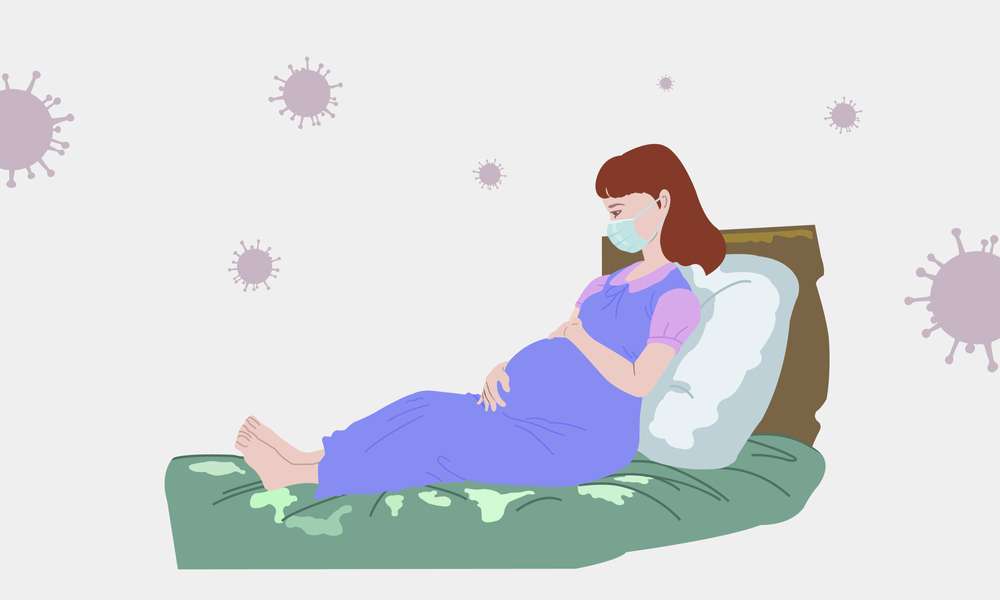Tdap Vaccine
Tdap Vaccine Pregnancy:
Tdap vaccine is a vital vaccine that plays a key role in protecting people against certain diseases. The purpose of this comprehensive article is to provide valuable information about the Tdap vaccine, including its purpose, possible side effects, and importance during pregnancy.
What is the Tdap vaccine?
The Tdap vaccine, short for tetanus-diphtheria-pertussis vaccine, is a combination vaccine to protect against three different diseases. Each of these diseases can have serious consequences, which is why the Tdap vaccination is an essential preventative measure for people of all ages.
Tetanus:
Tetanus, also known as lockjaw, is a bacterial infection caused by the bacterium Clostridium tetani.This bacterium thrives in the soil and can enter the body through open wounds or cuts. Tetanus affects the nervous system, leading to muscle stiffness and even lockjaw, where the jaw muscles become tightly clenched.
Diphtheria:
Diphtheria is a highly contagious bacterial infection caused by Corynebacterium diphtheriae. It primarily affects the respiratory tract and causes severe inflammation in the throat, which makes breathing difficult and can lead to complications such as heart problems and nerve damage.
whooping cough:
Whooping cough, commonly known as whooping cough, is caused by the bacterium Bordetella pertussis. This infectious disease mainly affects the respiratory tract and leads to long-lasting coughing fits, which can be particularly annoying, especially in infants and small children.
Side effects of the Tdap vaccine:
Although the Tdap vaccine plays a key role in preventing life-threatening diseases, it is important to be aware of its possible side effects. It should be noted that for most people, reactions are mild and resolve without complications.However, as with any vaccine, some side effects may occur.
Mild side effects:
- Pain or redness at the injection site.
- Low fever.
- Headache or tiredness.
Rare but serious side effects:
- Allergic reactions: In very rare cases, serious allergic reactions may occur, including difficulty breathing, swelling of the face or throat and hives.
- Guillain-Barré syndrome (GBS): Although extremely rare, there have been isolated cases in which the Tdap vaccine has been linked to GBS, a neurological disease that affects the body’s immune system.
- Remember that the benefits of the Tdap vaccine far outweigh the potential risks of these rare side effects.You should always consult a doctor to address any concerns or questions you may have.
Tdap vaccine during pregnancy:
Pregnant individuals, in particular, should understand the importance of the Tdap vaccine to safeguard both their own health and the health of their newborns. Vaccination during pregnancy can provide protective antibodies to infants, who are more vulnerable to severe complications from diseases such as pertussis.
Immunization Timing:
The Centers for Disease Control and Prevention (CDC) recommends that pregnant women receive the Tdap vaccine between 27 and 36 weeks of pregnancy, preferably in the third trimester. In this way, maternal antibodies quickly enter the fetus and provide basic protection in the first months of life.
Protecting newborns from whooping cough
Newborns are most at risk of complications from whooping cough, which can endanger the lives of the little ones. By receiving the Tdap vaccine during pregnancy, mothers can pass protective antibodies to their babies, reducing the risk of pertussis infection during a vulnerable period before they can receive their own vaccines.
Tdap Booster:
The Tdap booster is a vaccine that provides additional immunity against three specific diseases: tetanus, diphtheria and pertussis (cough). The acronym Tdap means:
- Tetanus: Tetanus is a bacterial infection that can occur when bacteria from soil or dust enter a wound and cause muscle stiffness and cramps.It might even endanger life if untreated.
- Diphtheria: Diphtheria is a bacterial infection that primarily affects the throat and upper respiratory tract. It can cause severe breathing difficulties and can be fatal if not treated quickly.
- APertussis: Whooping cough, also known as whooping cough, is a highly contagious respiratory disease caused by the bacterium Bordetella pertussis. Severe coughing attacks and complications can occur, especially in infants and small children.
- Booster doses of Tdap are typically given to adolescents and adults to increase their resistance to these diseases. It is often recommended as part of routine vaccination programs and for people who have never received the Tdap vaccine or need a booster dose. Tdap is especially important for pregnant women, healthcare workers, and anyone who may be in close contact with newborns to prevent the spread of whooping cough.
Tdap Vaccine how offen?
The recommended frequency of administration of the Tdap vaccine (which protects against tetanus, diphtheria, and pertussis) may vary depending on age, vaccination history, and specific circumstances. Here are the general guidelines:
Young people (11-18 years):
- Adolescents should receive a single dose of the Tdap vaccine at age 11 or 12.
- adolescents ages 13 to 18 who have never been vaccinated with the Tdap vaccine are eligible to receive a booster dose of the Tdap vaccine.
Adults (19 years and older):
- Adults who have never received the Tdap vaccine were scheduled to receive a single dose.
- After the first Tdap vaccination, a Tdap booster vaccination is recommended every 10 years to maintain protection against tetanus and diphtheria.
Special populations:
- Pregnant women: Pregnant women should receive the Tdap vaccine during every pregnancy, preferably between 27 and 36 weeks of pregnancy.This will help protect your newborn from whooping cough (whooping cough) during the vulnerable first few months of life.
- Healthcare workers: Healthcare workers who are in contact with patients should also receive a Tdap booster, especially if they have not taken it in the last 10 years, to protect themselves and their loved ones.
- Close contact with newborns: Anyone who has close contact with newborns, such as grandparents, caregivers and other family members, should receive an ACT booster vaccination to reduce the risk of transmitting whooping cough to an at-risk newborn.
Note:
It is important to consult your doctor to determine your specific vaccination needs based on your age, vaccination history and any special circumstances. Adherence to recommended vaccinations is critical to ensure continued protection against these diseases and to contribute to public health efforts to prevent the spread of vaccine-preventable diseases.
How long after tdap vaccine pregnancy can side affects occur?
Side effects of the Tdap vaccine (which protects against tetanus, diphtheria, and whooping cough) usually occur within a few hours to a few days after vaccination. Most people experience mild, temporary side effects, if any. These side effects are usually not serious and indicate that your body is building up immunity. Some side effects may include:
- Pain, redness or swelling at the injection site: This is one of the most common side effects and usually occurs a few hours to a day after vaccination.
- Mild fever: Some people may experience a mild fever, usually a day or two after vaccination.
- Fatigue: Fatigue is a common side effect that may occur a day or two after vaccination.
- Headache: Headache is also a common side effect and can occur one to two days after vaccination.
- Muscle or joint pain: Some people may experience muscle or joint pain, usually a day or two after vaccination.
- Chills: Chills may occasionally occur as a side effect, usually one to two days after vaccination.
Note:
It should be noted that serious allergic reactions to the Tdap vaccine are extremely rare.If they did occur, they would typically occur within a few minutes or hours of vaccination. Symptoms of a serious allergic reaction may include difficulty breathing, swelling of the face or throat, fast heartbeat, and severe rash. If you or someone you know experiences any of these serious symptoms after receiving the vaccine, seek medical attention immediately.
Most people tolerate the Tdap vaccine well, and any side effects that occur are generally mild and short-lived. If you experience any bothersome or worrying side effects, contact your doctor.It is important to remember that the benefits of vaccination in preventing serious illness far outweigh the risks of mild and temporary side effects.
Tdap Schedule:
The Tdap vaccination schedule may vary depending on age and vaccination history. Here are some general recommendations for different age groups:
- Young people (11-18 years):At age 11 or 12, adolescents should receive a single dose of the Tdap vaccine.
adolescents ages 13 to 18 who have never been vaccinated with the Tdap vaccine are eligible to receive a booster dose of the Tdap vaccine. - Adults (19 years and older):Grown-ups who have not yet got the Tdap immunization ought to do as such in a solitary portion.To maintain protection against tetanus and diphtheria, a Tdap booster is recommended every 10 years.
special populations: - Women who are expecting: Between weeks 27 and 36 of pregnancy, pregnant women should take the Tdap vaccine.This will help protect your newborn from whooping cough (whooping cough) during the vulnerable first few months of life.
- Healthcare workers: Healthcare workers who are in contact with patients should also receive a Tdap booster, especially if they have not taken it in the last 10 years, to protect themselves and their loved ones.
- Close contact with newborns: Anyone who has close contact with newborns, such as grandparents, caregivers and other family members, should receive an ACT booster vaccination to reduce the risk of transmitting whooping cough to an at-risk newborn.
- It is important to consult your doctor to determine your specific vaccination needs based on your age, vaccination history and any special circumstances. They can tell you when you should get the Tdap vaccine and whether you need a booster shot.Vaccinations are an important part of public health and can help prevent the spread of vaccine-preventable diseases.
Where can i get the Tdap vaccine for free?
Availability of free Tdap vaccines may vary based on location, age and specific circumstances. Here are some popular places where you can get the Tdap vaccine for free or a small fee:
- Local Health Departments: Many local health departments are offering free or low-cost vaccines through public health departments. Contact your local health department for information about vaccination schedules and office hours.
- Community Health Clinics: Community health clinics often offer vaccinations at a reduced or free cost, particularly to the uninsured or underinsured. You can search for a local health clinic near you and learn about the vaccination services they offer.
- Vaccine Clinics: Free vaccination clinics may occasionally be held in your community, offered by local health departments or nonprofit organizations. Pay attention to local news and public health announcements for information about such events.
- Vaccines for Children (VFC) Program: In the United States, the Vaccines for Children (VFC) Program provides free vaccinations, including Tdap, to eligible children and adolescents who are uninsured, underinsured, or eligible for Medicaid. Check with your doctor or local health department to see if you or your child is eligible for this program.
Note:
Be sure to check with the appropriate organizations or providers in your area to confirm availability and eligibility criteria for free or low-cost Tdap vaccines.They can provide you with information on how to access these services and arrange an appointment if necessary. Additionally, health insurance coverage and government programs may change over time. It is therefore advisable to check the current options in your region.
Conclusion:
The Tdap vaccine is a valuable tool in preventing tetanus, diphtheria, and pertussis – all of which can have serious consequences. While the vaccine may have mild side effects, they are typically short-lived and far outweigh the potential risks associated with these diseases. Pregnant individuals can significantly protect their newborns by receiving the Tdap vaccine during the recommended period. Remember, consulting with healthcare professionals is essential to understand the importance of immunization and address any concerns.Proactively protect your health and that of your loved ones with the power of vaccinations.


